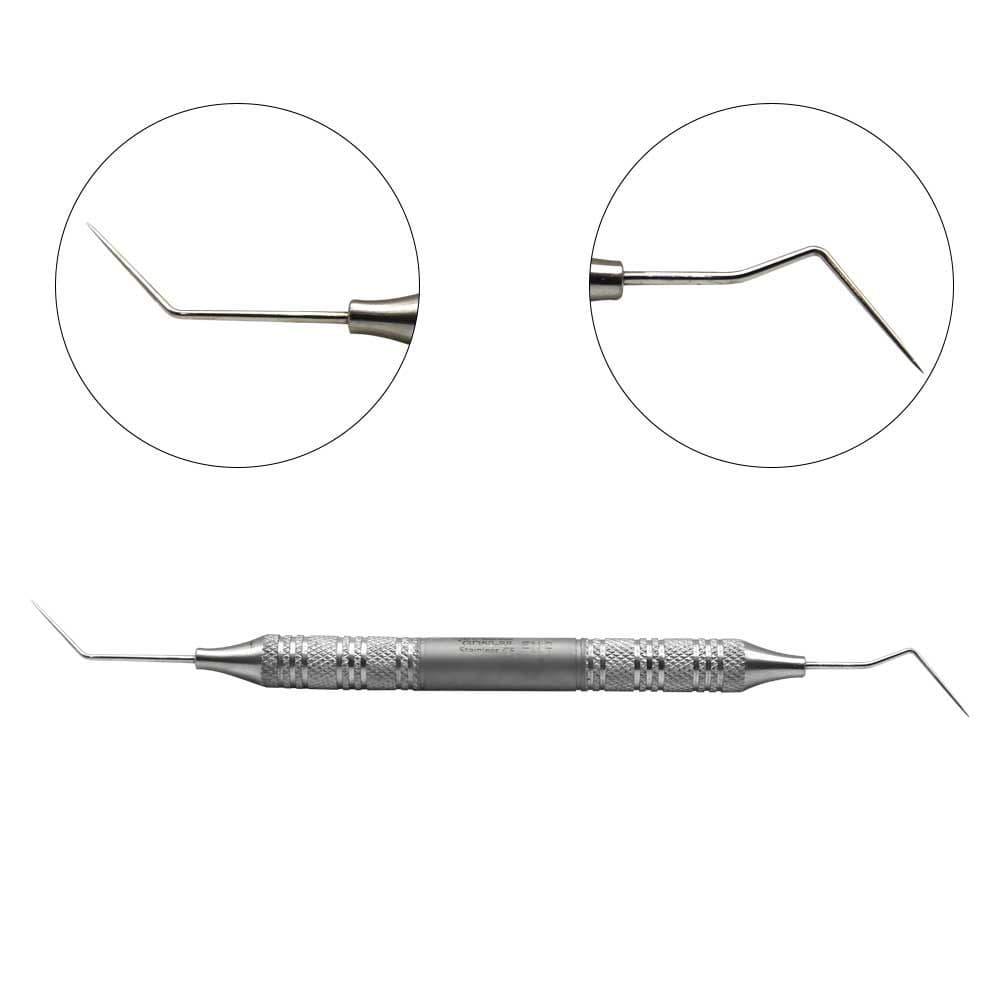
What is a Dental Explorer? Uses, Types & Why It Matters
When it comes to dental checkups, many tools help dentists keep our teeth healthy. One of the most important — yet often overlooked — is the dental explorer.
This simple tool plays a big role in spotting problems early and making sure your teeth stay in good shape. In this post, we'll break down what a dental explorer is, how it's used, and why it's so essential in modern dentistry.
What Is a Dental Explorer?
A dental explorer is a thin, pointed instrument that dentists use during exams. It helps them feel the surface of your teeth to check for:
Cavities
Cracks or chips
Tartar buildup
Weak spots in the enamel
Loose fillings or worn restorations
Dentists don’t use it to poke or harm teeth — it’s all about gently feeling for changes that may not be visible to the eye
What Does a Dental Explorer Tool Do?
You might hear it called a dental explorer tool or explorer dental instrument. Either way, its job stays the same: detect early signs of trouble. Here's what it helps with:
Find early cavities before they get worse
Feel for rough spots or decay
Check around fillings or crowns to make sure they’re still in good shape
Spot hidden tartar between teeth or under the gumline
By using the explorer, dentists can catch small issues before they turn into bigger, more expensive ones.
Common Types of Explorers Dental Instruments
Not all explorers look the same. Dentists choose the right one based on what area they need to check.
Most Common Types:
Shepherd's Hook Explorer (No. 23)
Great for detecting cavities in grooves and pits on chewing surfaces.Cowhorn or Pigtail Explorer
Curved tips that work well between teeth for checking tartar buildup.Right Angle Explorer
Good for hard-to-reach areas, especially behind back teeth.
Some tools have double ends — two tips in one — for added flexibility during exams.
What to Look for in a Dental Explorer Instrument
Dentists and hygienists need tools they can rely on every day. A good explorer dental instrument should offer:
Durable stainless steel tips
Comfortable grip and balance
Precise feedback when moving across the tooth
Easy cleaning and sterilization
When the explorer is made right, it makes exams smoother and more accurate for both patients and professionals.
Why Choose GerDentUSA Dental Explorers?
At GerDentUSA, we design tools that dental professionals trust. Our dental explorers are crafted from high-quality German stainless steel, offering precision and long-lasting use in everyday practice.
Whether you're checking for cavities or evaluating an old filling, our explorer dental instruments provide the tactile feel and control dentists rely on. Plus, all our tools are easy to clean, well-balanced, and built to last.
FAQs:
Q1: Does a dental explorer hurt?
No. Dentists use it gently to feel the surface. If a spot is already sensitive, it may feel uncomfortable — but the tool itself isn’t meant to hurt.
Q2: Can it find all cavities?
It’s great for detecting early decay, especially on the surface. Deeper problems may still need X-rays or other tools to confirm.
Q3: Do all dentists use the same explorer?
Not exactly. While most use a shepherd’s hook, others may choose different shapes depending on the patient's needs or personal preference.
Appreciate the creator